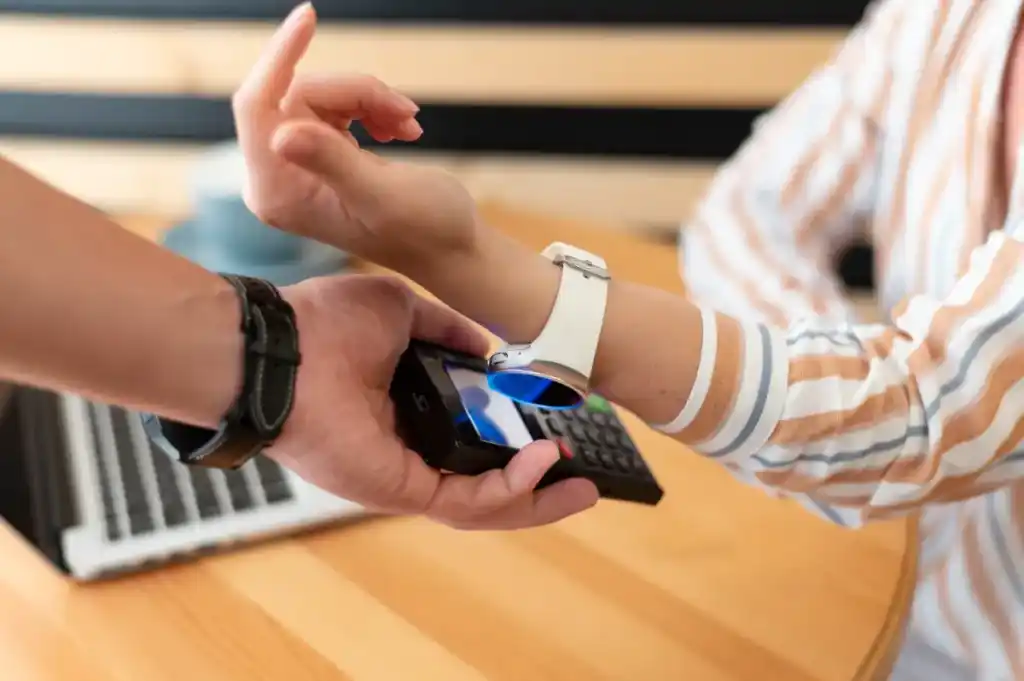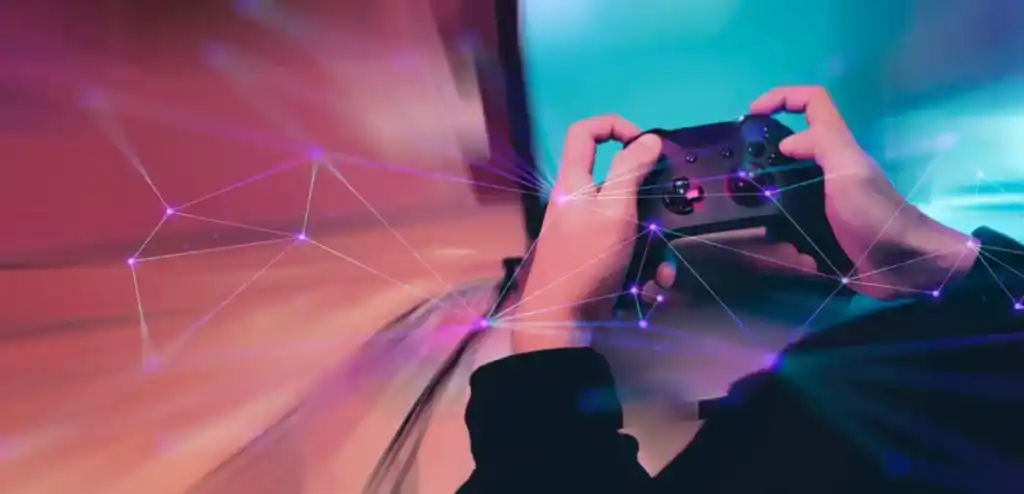
How Blockchain is Changing the Gaming Industry
The gaming industry is leading in technological innovation. Now, blockchain technology is changing how players engage with digital worlds. With blockchain gaming, NFTs in gaming, and decentralised gaming, blockchain offers more transparency, security, and player ownership.
As gaming becomes more immersive, blockchain enables true digital ownership, in-game economies, and decentralised ecosystems. This shift puts control back in players’ hands. So, how is blockchain transforming gaming, and what does the future hold? Let’s explore the key ways blockchain reshapes the industry.
Quick Guide: How Blockchain is Changing the Gaming Industry
- What is Blockchain Gaming?
- Uses blockchain for secure transactions and digital ownership.
- Enables players to own, trade, and sell in-game assets.
- Features play-to-earn (P2E) models with real-world rewards.
- NFTs in Gaming:
- In-game items (skins, weapons) stored as NFTs with real-world value.
- Virtual real estate traded in games like Decentraland.
- Cross-game compatibility for NFT items in the same ecosystem.
- Decentralised Gaming:
- No central authority; uses smart contracts for fairness.
- DAO governance gives players voting power over game updates.
- Censorship resistance ensures games cannot be shut down.
- Industry Impact:
- Player-Driven Economies: Players trade, earn, and invest in digital assets.
- Enhanced Security: Blockchain reduces fraud and hacking.
- Empowered Developers: Developers can crowdfund through token sales and NFTs.
- Challenges of Blockchain Gaming:
- Scalability Issues: Network congestion and high fees on blockchains like Ethereum.
- Regulatory Uncertainty: Governments still developing NFT and crypto regulations.
- Environmental Concerns: Some blockchains have high energy consumption.
- Future Trends:
- More AAA blockchain games with high-end graphics and gameplay.
- Fully decentralised virtual worlds in metaverse ecosystems.
- Cross-game NFT integration for true interoperability.
- Hybrid models blending blockchain and traditional gaming.
Pro Tip:
When investing in blockchain gaming, research the platform’s scalability and sustainability. Opt for eco-friendly blockchains with lower fees and faster transaction speeds.
Important Tip:
To enhance security, only trade in-game NFTs on reputable and verified marketplaces. This reduces the risk of scams and ensures asset authenticity.
What is Blockchain Gaming?
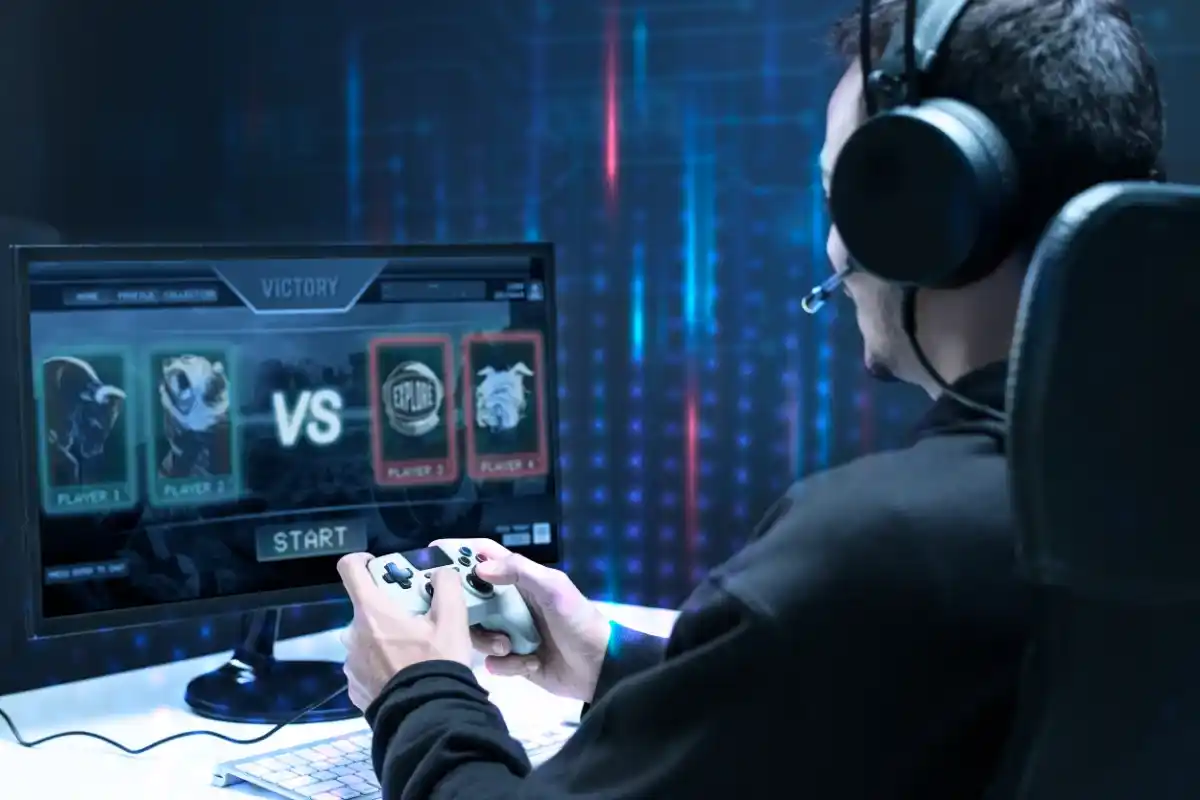
Blockchain gaming means video games that use blockchain technology for secure transactions, digital ownership, and decentralised control. Unlike traditional games, where in-game assets are stored on centralised servers, blockchain games let players own, trade, and sell their digital assets securely.
Key Features of Blockchain Gaming:
- True Ownership – Players fully own in-game items, skins, and characters as digital assets instead of being linked to a centralised server.
- Interoperability – Items from one game can be used in another if both use the same blockchain network.
- Play-to-earn (P2E) Models – Players can earn real-world value by trading in-game assets or cryptocurrencies.
- Transparency & Security – Every transaction is recorded on the blockchain, which helps reduce fraud and cheating.
Popular blockchain gaming platforms include Ethereum, Solana, and Polygon, which provide scalable solutions for next-generation gaming experiences.
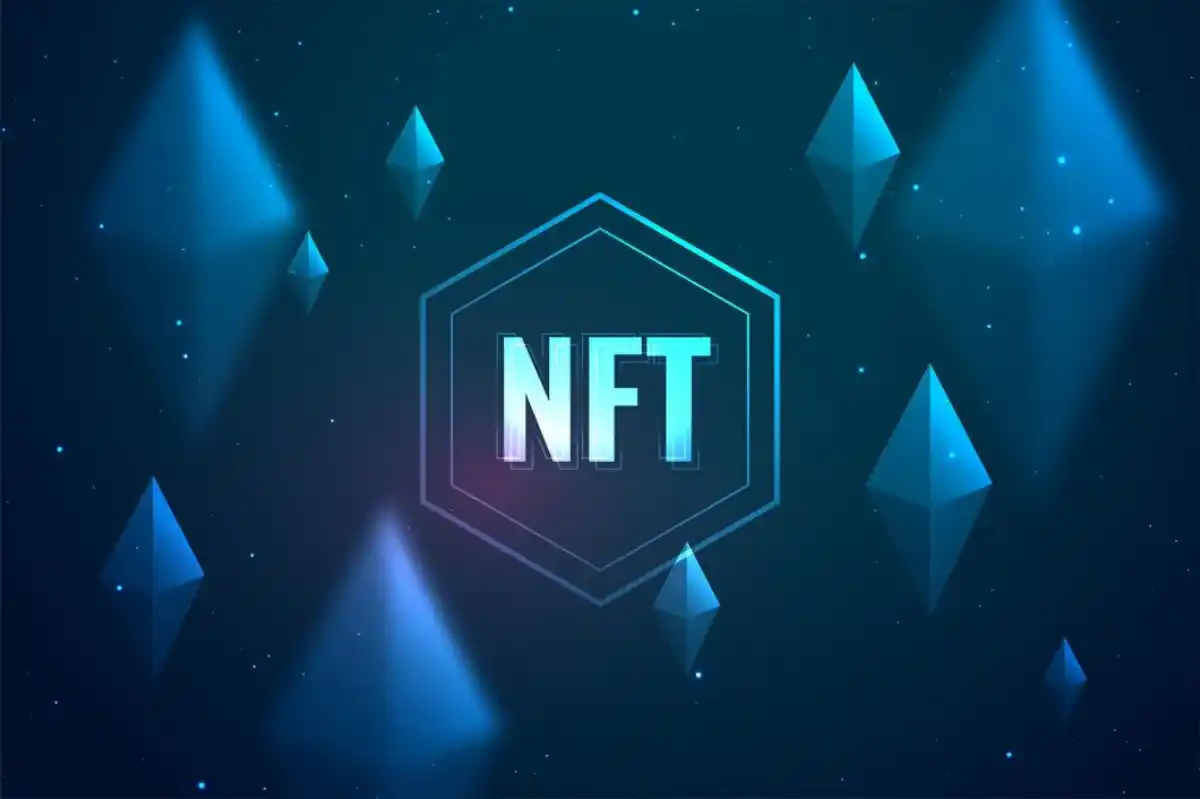
NFTs in Gaming: A New Era of Digital Assets
One major innovation in gaming is NFTs (Non-Fungible Tokens). NFTs in gaming let players buy, sell, and trade unique digital assets that hold real-world value.
How NFTs Work in Gaming
- In-Game Items – Weapons, skins, and accessories are stored as NFTs, giving players true ownership.
- Virtual Real Estate – Players can buy, sell, and develop land in virtual worlds like Decentraland and The Sandbox.
- Character Skins & Avatars – Customisable avatars can be traded or sold in NFT marketplaces.
Benefits of NFTs in Gaming
- Ownership & Rarity – Unlike traditional games where items are licensed, NFTs grant actual ownership.
- Monetisation – Players can trade NFTs for cryptocurrency or real money.
- Cross-Game Compatibility – NFT items can be used across different games within the same ecosystem.
Major gaming companies like Ubisoft and Square Enix are integrating NFTs in gaming, showing a shift toward player-driven economies.
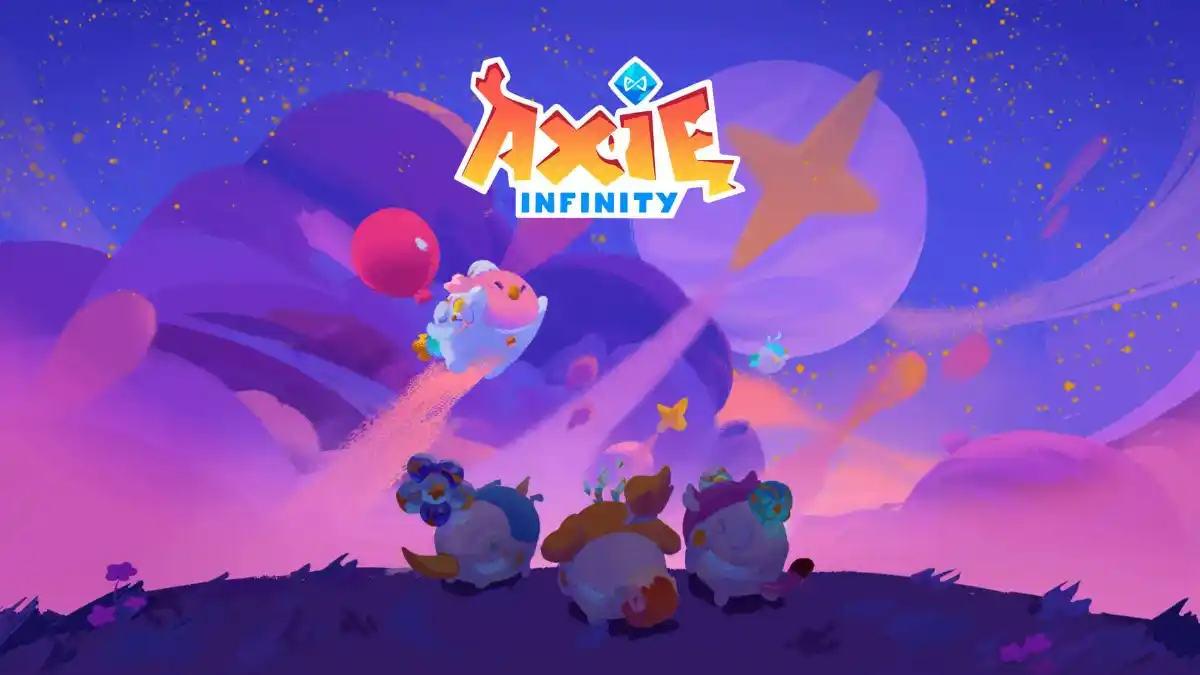
The Rise of Decentralised Gaming
What is Decentralised Gaming?
Decentralised gaming removes the need for a central authority, such as a game developer or publisher. Instead, the gaming experience relies on smart contracts, ensuring fairness and transparency.
How Decentralised Gaming Works
- Smart Contracts – Self-executing contracts on the blockchain automate in-game actions, removing intermediaries.
- DAO Governance – Players can vote on game updates and changes, giving them more control.
- Censorship Resistance – Decentralised games hosted on blockchain networks cannot be shut down or altered without community agreement.
Examples of Decentralised Gaming
- Axie Infinity – A play-to-earn game where players battle creatures called Axies for crypto rewards.
- Gods Unchained – A blockchain-based card game where users own their cards as NFTs.
- Illuvium – A decentralised RPG with an open-world metaverse where players collect and trade creatures.
The rise of decentralised gaming is shifting power from corporations to players, allowing for greater autonomy and financial opportunities.
How Blockchain Gaming Impacts the Industry
Blockchain technology is profoundly affecting the gaming industry, benefiting both developers and players.
1. Player-Driven Economies
Traditional gaming economies are controlled by developers, limiting how players use their in-game assets. In blockchain gaming, players can:
- Trade items freely in decentralised marketplaces.
- Earn real money through play-to-earn mechanics.
- Invest in digital assets that retain value over time.
2. Reducing Fraud & Hacks
Blockchain records every transaction, making it hard for hackers to manipulate in-game economies. This is especially important for games with valuable digital assets.
3. Empowering Developers
Developers can create games without relying on third-party publishers by funding projects through:
- Token sales (Initial Game Offerings or IGOs).
- Crowdfunding via NFTs.
- Smart contract-driven game economies.
This opens up more creativity and innovation, as developers are no longer dependent on large corporations.
Challenges of Blockchain Gaming
While blockchain gaming has many benefits, it faces challenges that need addressing for wider adoption.
1. Scalability Issues
Popular blockchains like Ethereum can become congested, leading to high fees and slow processing. Layer-2 solutions like Polygon and Immutable X aim to improve this.
2. Regulatory Uncertainty
Governments are still developing regulations for NFTs in gaming and cryptocurrency transactions. Clear guidelines are needed to protect players and ensure compliance.
3. Environmental Concerns
Some blockchain networks use a lot of energy. However, newer ones like Solana and Tezos offer eco-friendly alternatives with lower carbon footprints.
The Future of Blockchain in Gaming
Blockchain in gaming is still in its early stages, but its potential is clear. Here’s what the future may bring:
1. More AAA Blockchain Games
Large studios will likely create high-quality blockchain games that rival traditional titles in graphics and gameplay.
2. Fully Decentralised Virtual Worlds
Metaverse projects like The Sandbox and Decentraland will keep evolving, offering fully decentralised gaming ecosystems.
3. Cross-Game NFT Integration
Imagine using an NFT sword from one game in another, creating true interoperability between gaming worlds.
4. Hybrid Models of Traditional & Blockchain Gaming
Mainstream games might combine blockchain elements with traditional gameplay, offering the best of both worlds.
FAQs: How Blockchain is Changing the Gaming Industry
1. What is blockchain gaming?
Blockchain gaming uses blockchain technology to offer secure transactions, true digital ownership, and decentralised control. Unlike traditional games, where in-game assets are owned by developers, blockchain games allow players to fully own, trade, and sell their digital items. This creates player-driven economies with real-world value.
2. What are NFTs in gaming?
NFTs (Non-Fungible Tokens) in gaming are unique digital assets that players can buy, sell, and trade. These include in-game items like skins, weapons, and virtual real estate. Stored on the blockchain, NFTs grant players true ownership and can sometimes be used across multiple games.
3. How does blockchain improve gaming security?
Blockchain boosts gaming security by recording all transactions on an immutable ledger, making them tamper-proof. Smart contracts automate in-game actions, reducing fraud and cheating. The decentralised nature of blockchain also makes it harder for hackers to alter game data.
4. What are the benefits of decentralised gaming?
Decentralised gaming gives players more control by removing central authority oversight. Through decentralised autonomous organisations (DAOs), players can vote on game updates. These games also offer censorship resistance, preventing sudden shutdowns or changes without community approval.
5. What challenges does blockchain gaming face?
Blockchain gaming struggles with scalability issues, as some blockchains experience congestion and high fees. Regulatory uncertainty also poses challenges, with governments still shaping NFT and crypto rules. Additionally, some blockchains have high energy consumption, raising environmental concerns.
The Future of Gaming: How Blockchain is Revolutionizing Digital Play
Blockchain is changing the gaming industry by introducing true digital ownership, decentralised economies, and play-to-earn opportunities. From NFTs in gaming to decentralised gaming platforms, blockchain empowers players with more control over their in-game assets and financial rewards.
Challenges remain, but rapid advancements in blockchain gaming indicate it’s here to stay. As technology evolves, we can expect a future where players truly own their gaming experience, making games more interactive, rewarding, and transparent.
Whether you’re a gamer, developer, or investor, blockchain gaming is an exciting area to watch as it continues to transform the industry.

